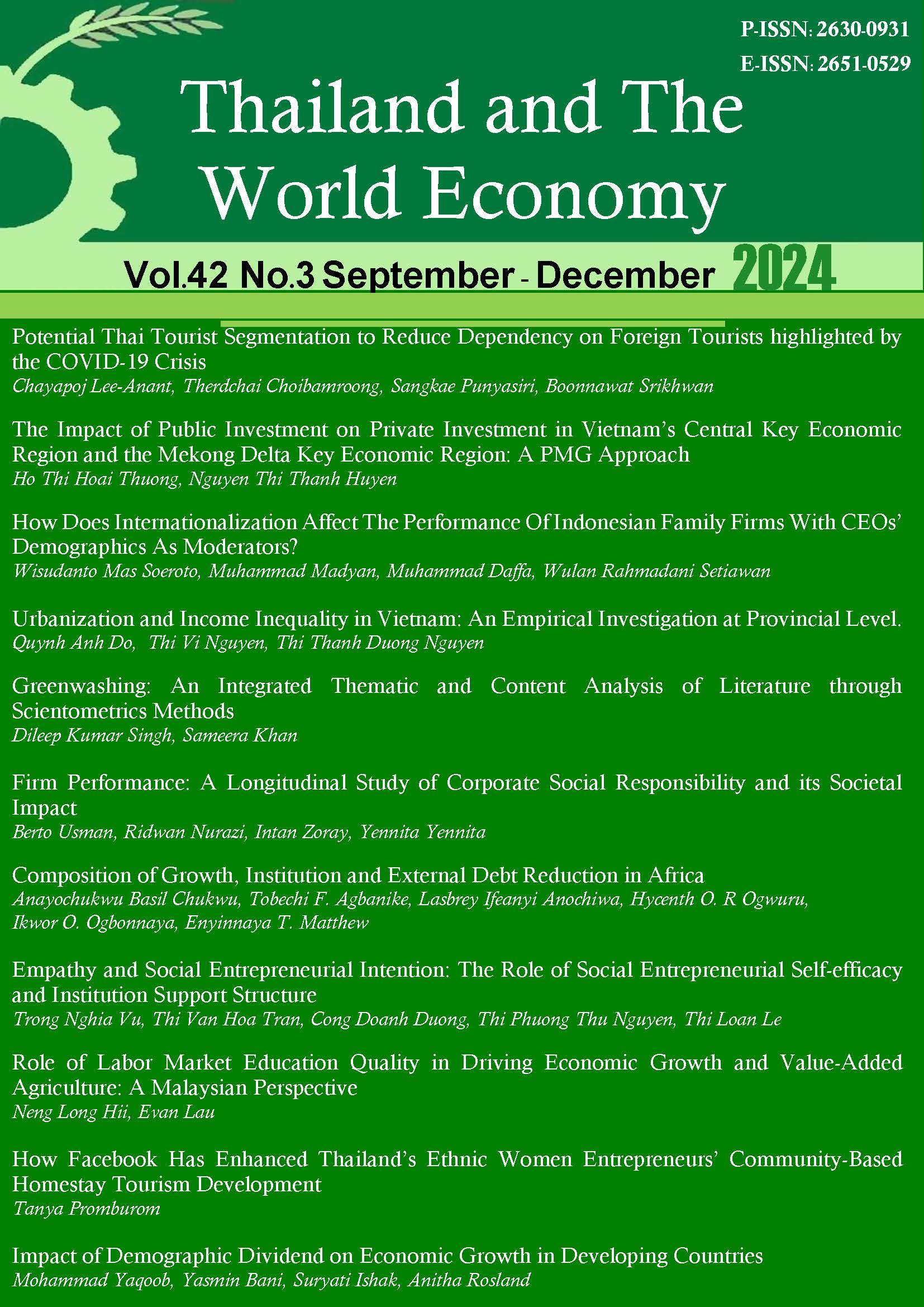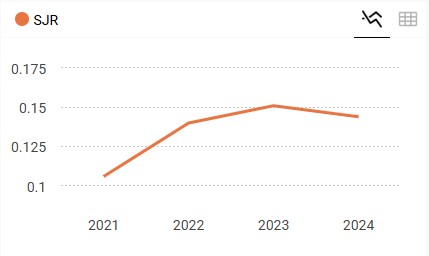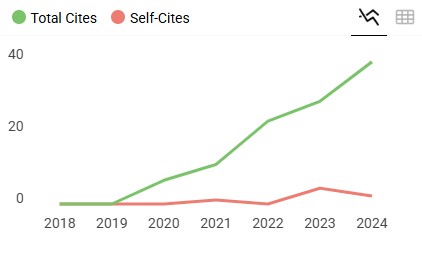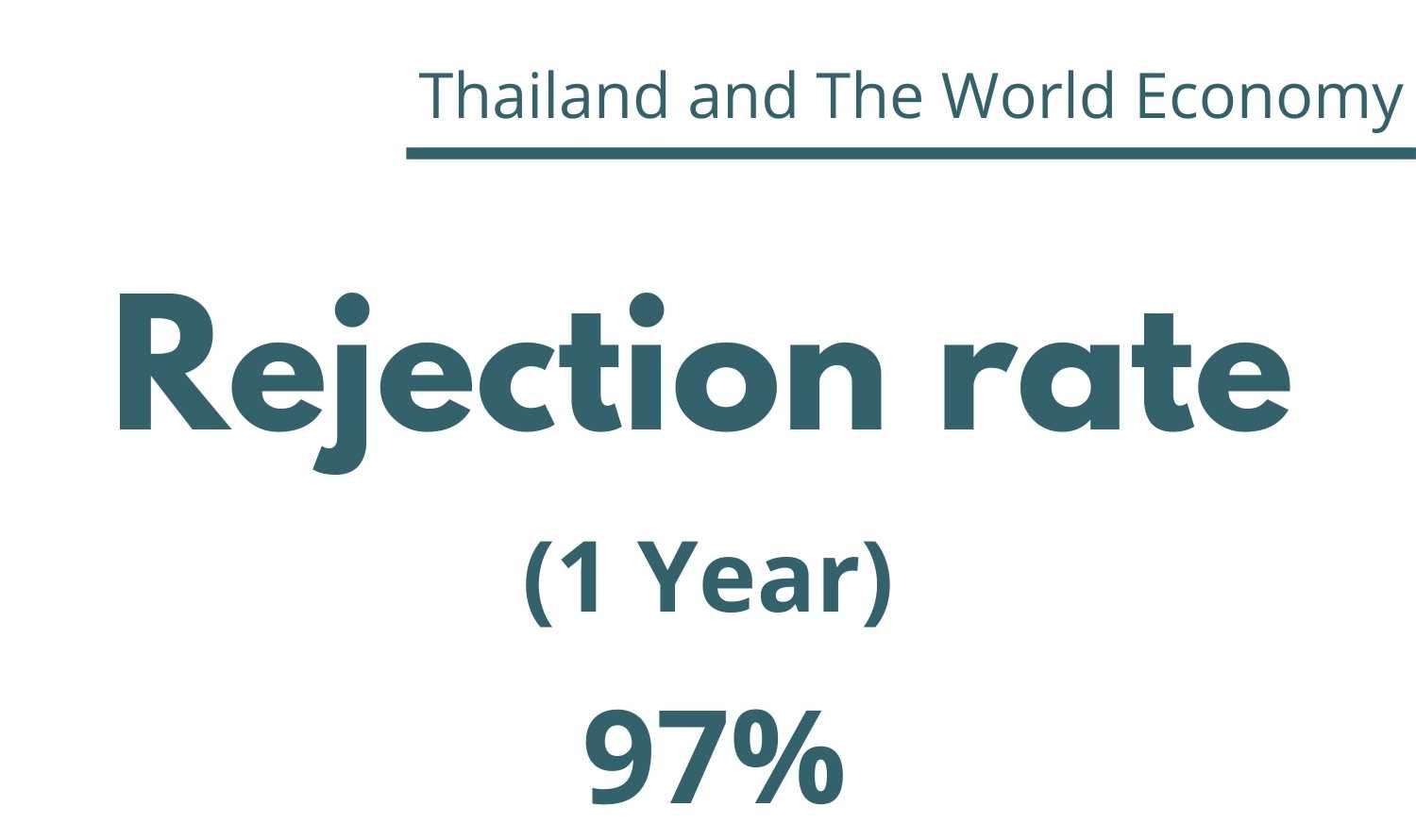Firm Performance: A Longitudinal Study of Corporate Social Responsibility and its Societal Impact
Keywords:
Social impact, CSR reporting practice, and firm performance, banksAbstract
The goal of this study is to investigate how social impact, corporate social responsibility (CSR) reporting practices, and firm performance relate to one another in the context of ASEAN (Association of Southeast Asian Nations) banking. The sample was screened from 27 publicly listed banks in five ASEAN member countries (i.e., Indonesia, Malaysia, Singapore, the Philippines, and Thailand), with the period of observations ranging from 2011 to 2019 fiscal year. Social impact is a measure of social performance pillar scores provided by the ASSET4 CSR ranking companies. While, CSR reporting practices used three surrogate indicators: (i) the presence of CSR report; (ii) the existence of CSR assurance; and (iii) the adoption of the Global Reporting Initiatives (GRI) disclosure framework. Firm performance used accounting-based (i.e., return on asset and revenue) and market-based (i.e., market capitalization) measures. This study used longitudinal panel data analysis, including the fixed effect model with robust standard errors. The obtained empirical evidence shows that social impact is positively and significantly associated with three proxies of firm performance (ROA, REVENUE, and MCAP), while the proxies of CSR reporting practices show a partial positive and significant association with the proxies of firm performance. The additional analysis using lagged independent variables and an alternate measure of firm performance (ROE) shows slightly more consistent results relative to the main analysis, suggesting that firm performance needs some time lag so as to allow the impact of CSR reporting practices to be reflected in the variance of firm performance. The empirical tests using the ASEAN setting suggest that the idea of CSR has consistently evolved from being noticed as one of the detrimental factors to banks’ profitability to being deemed as one of the prerequisite conditions for gaining more potential benefits as strategic initiatives and objectives. Given that, banks should consider the importance of mandatory non-financial information publication to their stakeholders. This research paper advances the works of literature by enriching the limited empirical evidence in the context of social impact, CSR reporting practices, and firms’ performance in Non-Environmentally Sensitive Industries (NESIs). Apart from that, to the best of the authors’ knowledge, this is among the first studies that elaborate on the particular interplay between the so-called “social impact,” CSR reporting practices, and firms’ performance in ASEAN.
References
Aerts, W., Cormier, D., & Magnan, M. (2008). Corporate environmental disclosure, financial markets and the media: An international perspective. Ecological Economics, 64(3), 643–659.
Ali, R., Sial, M. S., Brugni, T. V., Hwang, J., Khuong, N. V., & Khanh, T. H. T. (2020). Does CSR moderate the relationship between corporate governance and Chinese firm’s financial performance? Evidence from the Shanghai Stock Exchange (SSE) firms. Sustainability (Switzerland), 12(1),149.
Amir, E., and B. Lev. 1996. Value-relevance of nonfinancial information: The wireless communications industry. Journal of Accounting and Economics, 22 (1): 3–30.
Arena, C., Liong, R., & Vourvachis, P. (2018). Carrot or stick: CSR disclosures by Southeast Asian companies. Sustainability Accounting, Management and Policy Journal, 9(4), 422-454.
Axjonow, A., Ernstberger, J., & Pott, C. (2016). The impact of corporate social responsibility disclosure on corporate reputation: A non-professional stakeholder perspective. Journal of Business Ethics, 151 (429-450).
Bagnoli, M., & Watts, S. G. (2017). Voluntary assurance of voluntary CSR disclosure. Journal of Economics and Management Strategy, 26(1), 205–230.
Barnett, M. L., & Salomon, R. M. (2012). Does it pay to be really good? Addressing the shape of the relationship between social and financial performance. Strategic Management Journal, 33(11), 1304–1320.
Bebbington, J., Larrinaga, C., & Moneva, J. M. (2008). Corporate social reporting and reputation risk management. Accounting, Auditing & Accountability Journal, 21(3), 337–361.
Bhattacharyya, A. (2015). Corporate social and environmental responsibility in an emerging economy: Through the lens of legitimacy theory. Australasian Accounting, Business and Finance Journal, 9(2), 79–92.
Bondy, K., Moon, J., & Matten, D. (2012). An institution of corporate social responsibility (CSR) in multi-national corporations (MNCs): Form and implications. Journal of Business Ethics, 111(2), 281–299.
Brammer, S, & Pavelin, S. (2006). Corporate reputation and social performance: The importance of fit. The Journal of Management Studies, 43(3), 435–456.
Brammer, Stephen, & Millington, A. (2005). Corporate reputation and philanthropy: An empirical analysis. Journal of Business Ethics, 61(1), 29–44.
Briem, C. R., & Wald, A. (2018). Implementing third-party assurance in integrated reporting: Companies’ motivation and auditors’ role. Accounting, Auditing & Accountability Journal, 31(5), 1461–1485.
Brooks, C., & Oikonomou, I. (2018). The effects of environmental, social and governance disclosures and performance on firm value: A review of the literature in accounting and finance. British Accounting Review, 50(1), 1–15.
Brown, H. S., de Jong, M., & Levy, D. L. (2009). Building institutions based on information disclosure: Lessons from GRI’s sustainability reporting. Journal of Cleaner Production, 17(6), 571–580.
Brown, N., & Deegan, C. (1998). The public disclosure of environmental performance information - A dual test of media agenda setting theory and legitimacy theory. Accounting and Business Research, 29(1), 21–41.
Chen, Y. C., Hung, M., & Wang, Y. (2018). The effect of mandatory CSR disclosure on firm profitability and social externalities: Evidence from China. Journal of Accounting and Economics, 65(1), 169–190.
Cheng, B., Ioannou, I., & Serafeim, G. (2014). Corporate social responsibility and access to finance. Strategic Management Journal, 35(1), 1–23.
Cho, C. H., & Patten, D. M. (2007). The role of environmental disclosures as tools of legitimacy: A research note. Accounting, Organizations, and Society, 32(7-8), 639-647).
Cho, C. H., Michelon, G., Patten, D. M., & Roberts, R. W. (2014). CSR report assurance in the USA: An empirical investigation of determinants and effects. Sustainability Accounting, Management and Policy Journal, 5(2), 130–148.
Cho, C. H., Michelon, G., Patten, D. M., & Roberts, R. W. (2015). CSR disclosure: The more things change?. Accounting, Auditing & Accountability Journal, 28(1), 14–35.
Cormier, D., & Magnan, M. (2015). The economic relevance of environmental disclosure and its impact on corporate legitimacy: An empirical investigation. Business Strategy and the Environment, 24(6), 431–450.
Cormier, D., Magnan, M., & Van Velthoven, B. (2005). Environmental disclosure quality in large German companies: Economic incentives, public pressures or institutional conditions?. European Accounting Review, 14(1), 3–39.
Deegan, C., Cooper, B. J., & Shelly, M. (2006). An investigation of TBL report assurance statements: Australian evidence. Australian Accounting Review, 16(2), 2–18.
Dhaliwal, D., Li, O. Z., Tsang, A., & Yang, Y. G. (2014). Corporate social responsibility disclosure and the cost of equity capital: The roles of stakeholder orientation and financial transparency. Journal of Accounting and Public Policy, 33(1), 328–355.
Dhaliwal, D. S., Li, O. Z., Tsang, A., & Yang, Y. G. (2011). Voluntary nonfinancial disclosure and the cost of equity capital: The initiation of corporate social responsibility reporting. The Accounting Review, 86(1), 59–100.
Dhaliwal, D. S., Radhakrishnan, S., Tsang, A., & Yang, Y. G. (2012). Nonfinancial disclosure and analyst forecast accuracy: International evidence on corporate social responsibility disclosure. The Accounting Review, 87(3), 723–759.
Du, S., Bhattacharya, C. B., & Sen, S. (2010). Maximizing business returns to corporate social responsibility (CSR): The role of CSR communication. International Journal of Management Reviews, 12(1), 8–19.
E & Y. (2017). Is your nonfinancial performance revealing the true value of your business to investors?. Retrieved from https://assets.ey.com/content/dam/ey-sites/ey-com/en_gl/topics/purpose/purpose-pdfs/ey-nonfinancial-performance-may-influence-investors.pdf
Espinosa, M., & Trombetta, M. (2004). The reputational consequences of disclosures. Name of Institute Working Paper No. IVIE WP-EC 2004 - 10. Retrieved from http://www.ivie.es/downloads/docs/wpasec/wpasec-2004-10.pdf
Ferguson, A., & Pündrich, G. (2015). Does industry specialist assurance of non-financial information matter to investors? Auditing: A Journal of Practice & Theory, 34(2), 121–146.
GRI. (2014). G4 Sustainability Reporting Guidelines - Reporting Principles and Standard Disclosures. Global Reporting Initiative, Retrieved from: https://www.globalreporting.org/resourcelibrary/G3-Guidelines-Incl-Technical-Protocol.pdf
Hahn, R., & Lulfs, R. (2014). Legitimizing negative aspects in GRI-oriented sustainability reporting: A qualitative analysis of corporate disclosure strategies. Journal of Business Ethics, 123(3), 401–420.
Hodge, K., Subramaniam, N., & Stewart, J. (2009). Assurance of sustainability reports: Impact on report users’ confidence and perceptions of information credibility. Australian Accounting Review, 19(3), 178–194.
Imbens, G. W., & Wooldridge, J. M. (2009). Recent developments in the econometrics of program evaluation. Journal of Economic Literature, 47(1), 5–86.
Issarawornrawanich, P., & Wuttichindanon, S. (2019). Corporate social responsibility practices and disclosures in Thailand. Social Responsibility Journal, 15(3), 318–332.
Junior, R. M., & Best, P. (2017). GRI G4 content index: Does it improve credibility and change the expectation – performance gap of GRI-assured sustainability reports?. Sustainability Accounting, Management and Policy Journal, 8(5), 571–594.
Kamaludin, K., Usman, B., Rusdi, M., & Susanti, W. (2022). CSR performance and CSR disclosure persistency: Empirical evidence of the US hypercompetitive industry. Contaduría y Administración, 67(2), 278–303.
Khan, M., Serafeim, G., & Yoon, A. (2016). Corporate sustainability: First evidence on materiality. The Accounting Review, 91(6), 1697–1724.
Kim, W. S., & Oh, S. (2019). Corporate social responsibility, business groups and financial performance: A study of listed Indian firms. Economic Research-Ekonomska Istrazivanja , 32(1), 1777–1793.
KPMG. (2013). The KPMG survey of corporate responsibility reporting 2013: Executive summary. Retrieved from https://assets.kpmg.com/content/dam/kpmg/pdf/2013/
/corporate-responsibility-reporting-survey-2013.pdf.
KPMG. (2017). The KPMG survey of corporate responsibility reporting 2017. Retrieved from. https://assets.kpmg.com/content/dam/kpmg/be/pdf/2017/kpmg-survey-of-corporate-responsibility-reporting-2017.pdf.
KPMG International. (2015). KPMG survey of corporate responsibility reporting 2015. Retrieved from https://assets.kpmg.com/content/dam/kpmg/pdf/2015/12/KPMG-survey-of-CR-reporting-2015.pdf.
Lawrence, L., & Thomas, T. (2018). Sustainability reporting in ASEAN countries. Retrieved from https://www.asean-csr-network.org/c/images/Resources/Reports/
_Sustainability_Reporting_in_ASEAN_Countries.pdf
Lee, D. (2017). Corporate social responsibility and management forecast accuracy. Journal of Business Ethics, 140(2), 353–367.
Lennox, C. S., Francis, J. R., & Wang, Z. (2012). Selection models in accounting research. The Accounting Review, 87(2), 589–616.
Leuz, C., & Verrecchia, R. E. (2000). The economic consequences of increased disclosure. Journal of Accounting Research, 38(1), 91–124.
Liu, F. H. M., Demeritt, D., & Tang, S. (2019). Accounting for sustainability in Asia: Stock market regulation and reporting in Hong Kong and Singapore. Economic Geography, 95(4), 362–384.
Lys, T., Naughton, J. P., & Wang, C. (2015). Signaling through corporate accountability reporting. Journal of Accounting and Economics, 60(1), 56–72.
Mahoney, L. S., Thorne, L., Cecil, L., & LaGore, W. (2013). A research note on standalone corporate social responsibility reports: Signaling or greenwashing?. Critical Perspectives on Accounting, 24(4–5), 350–359.
Manurung, A. M., & Basuki, H. (2010). An analytical assessment of assurance practices in social environmental and sustainable reporting in the United Kingdom and North America. Gadjah Mada International Journal of Business, 12(1), 75–115.
Mercer, M. (2004). How do investors assess the credibility of management disclosures?. Accounting Horizons, 18(3), 185–196.
Mertens, W., Pugliese, A., & Recker, J. (2016). Quantitative data analysis: A companion for accounting and information systems research. Quantitative data analysis: A companion for accounting and information systems research, (1-170). Switzerland.
Michelon, G., Pilonato, S., & Ricceri, F. (2015). CSR reporting practices and the quality of disclosure: An empirical analysis. Critical Perspectives on Accounting, 33, 59–78.
Michelon, G., Pilonato, S., Ricceri, F., & Roberts, R. W. (2016). Behind camouflaging: Traditional and innovative theoretical perspectives in social and environmental accounting research. Sustainability Accounting, Management and Policy Journal, 7(1), 2–25.
Moneva, M., Archel, P., & Correa, C. (2006). GRI and the camouflaging of corporate unsustainability. Accounting Forum, 30(1), 121–137.
Moroney, R., Windsor, C., & Aw, Y. T. (2011). Evidence of assurance enhancing the quality of voluntary environmental disclosures: An empirical analysis. Accounting and Finance, 52(March 2011), 903–939.
Muslu, V., Mutlu, S., Radhakrishnan, S., & Tsang, A. (2019). Corporate social responsibility report narratives and analyst forecast accuracy. Journal of Business Ethics, 154(4), 1119–1142.
Neu, D., Warsame, H., & Pedwell, K. (1998). Managing public impressions: Environmental disclosures in annual reports. Accounting, Organizations and Society, 23(3), 265–282.
Odriozola, M. D., & Baraibar-Diez, E. (2017). Is corporate reputation associated with quality of CSR reporting? Evidence from Spain. Corporate Social Responsibility and Environmental Management, 24(2), 121–132.
Patten, D. M. (1991). Exposure, legitimacy, and social disclosure. Journal of Accounting and Public Policy, 10(4), 297–308.
Patten, D. M., and Zhao, N. (2014). Standalone CSR reporting by U.S. retail companies. Accounting Forum, 38(2), 132–144.
Pérez, A., de los Salmones, M. del M. G., & López, C. (2015). Corporate reputation in the Spanish context: An interaction between reporting to stakeholders and industry. Journal of Business Ethics, 129(3), 733–746.
Platonova, E., Asutay, M., Dixon, R., & Mohammad, S. (2018). The impact of corporate social responsibility disclosure on financial performance: Evidence from the GCC Islamic banking sector. Journal of Business Ethics, 151(2), 451–471.
Pope, S., & Wæraas, A. (2016). CSR-washing is rare: A conceptual framework, literature review, and critique. Journal of Business Ethics, 137(1), 173–193.
Porter, M. E., & Kramer, M. R. (2011). Creating shared value. Harvard Business Review, 89(1/2), 62–77.
Prieto-carrón, M., Lund-thomsen, P., Prieto-carrón, M., Lund-thomsen, P., Chan, A., Muro, A., & Bhushan, C. (2006). Critical perspectives on CSR and development: What we know, what we don’t know, and what we need to know. International Affairs, 82(5), 977–987.
Rodrigue, M., Magnan, M., & Cho, C. H. (2013). Is environmental governance substantive or symbolic? An empirical investigation. Journal of Business Ethics, 114(1), 107–129.
Romero, S., Fernandez-Feijoo, B., & Ruiz, S. (2014). Perceptions of quality of assurance statements for sustainability reports. Social Responsibility Journal, 10(3), 480–499.
Rutherford, B. A. (2003). Obfuscation, textual complexity and the role of regulated narrative accounting disclosure in corporate governance. Journal of Management and Governance, 7(2), 187–210.
Sadou, A., Alom, F., & Laluddin, H. (2017). Corporate social responsibility disclosures in Malaysia: Evidence from large companies. Social Responsibility Journal, 13(2), 177–202.
SEC. (2019). Sustainability reporting guidelines for publicly listed companies. Retrieved from Securities and Exchange Commission https://www.sec.gov.ph/wp-content/uploads/2019/10/2019MCNo04.pdf.
She, C. (2019). Organisational use of social media and stakeholder engagement. Doctoral dissertation, University of Exeter, United Kingdom, Retrieved from https://ore.exeter.ac.uk/repository/bitstream/handle/10871/40601/SheC.pdf?sequence=1&isAllowed=y
Simnett, R., Vanstraelen, A., & Chua, W. F. (2009). Assurance on sustainability reports: An international comparison. The Accounting Review, 84(3), 937–967.
Simpson, A. (2010). Analysts’ use of nonfinancial information disclosures. Contemporary Accounting Research, 27(1), 249– 288.
Stiglitz, J. E. (2002). Information and the change in the paradigm in economics information. The American Economic Review, 92(3), 460–501.
Suchman, M. C. (1995). Managing legitimacy: Strategic and institutional approaches. Academy of Management Review, 20(3), 571–610.
Tandelilin, E., & Usman, B. (2023). Toward a better understanding of social impact, CSR reporting and firm performance: A look at the ASEAN banking industry. Social Responsibility Journal, 19(3), 579–600.
Thorne, L., Mahoney, L. S., & Manetti, G. (2014). Motivations for issuing standalone CSR reports: A survey of Canadian firms. Accounting, Auditing and Accountability Journal, 27(4), 686–714.
Toms, J. S. (2002). Firm resources, quality signals and the determinants of corporate environmental reputation: Some UK evidence. The British Accounting Review, 34(3), 257–282.
Unerman, J., Bebbington, J., & O'Dwyer, B. (2007). Introduction to sustainability accounting and accountability. In J. Unerman, J. Bebbington, & B. O'Dwyer (Eds.), Sustainability Accounting and Accountability. London, UK: Routledge
Usman, B. (2020). CSR performance, firm’s attributes, and sustainability reporting. International Journal of Business and Society, 21(2), 521–539.
Usman, B., Bernardes, O. T. F., & Kananlua, P. S. (2020). On the nexus between CSR practices, ESG performance, and asymmetric information. Gadjah Mada International Journal of Business, 22(2), 151–177.
Waagstein, P. R. (2011). The mandatory corporate social responsibility in Indonesia: Problems and implications. Journal of Business Ethics, 98(3), 455–466.
Waddock, S. A., & Graves, S. B. (1997). The corporate social performance-financial performance link. Strategic Management Journal, 18(4), 303–319.
Xu, B., & Yang, Y. C. (2019). Does corporate social responsibility facilitate public debt financing?. Retrieved from http://www.fmaconferences.org/Vietnam/Papers/
CSR_DebtStructure 20181213.pdf
Downloads
Published
How to Cite
Issue
Section
Categories
License
Copyright (c) 2024 Thailand and The World Economy

This work is licensed under a Creative Commons Attribution-NonCommercial-NoDerivatives 4.0 International License.










